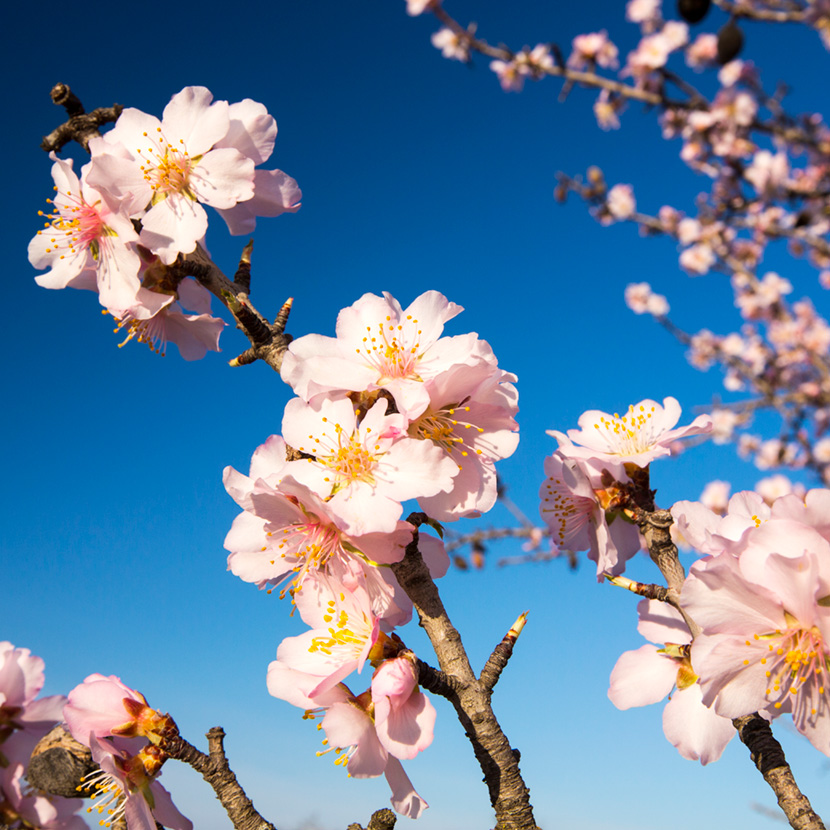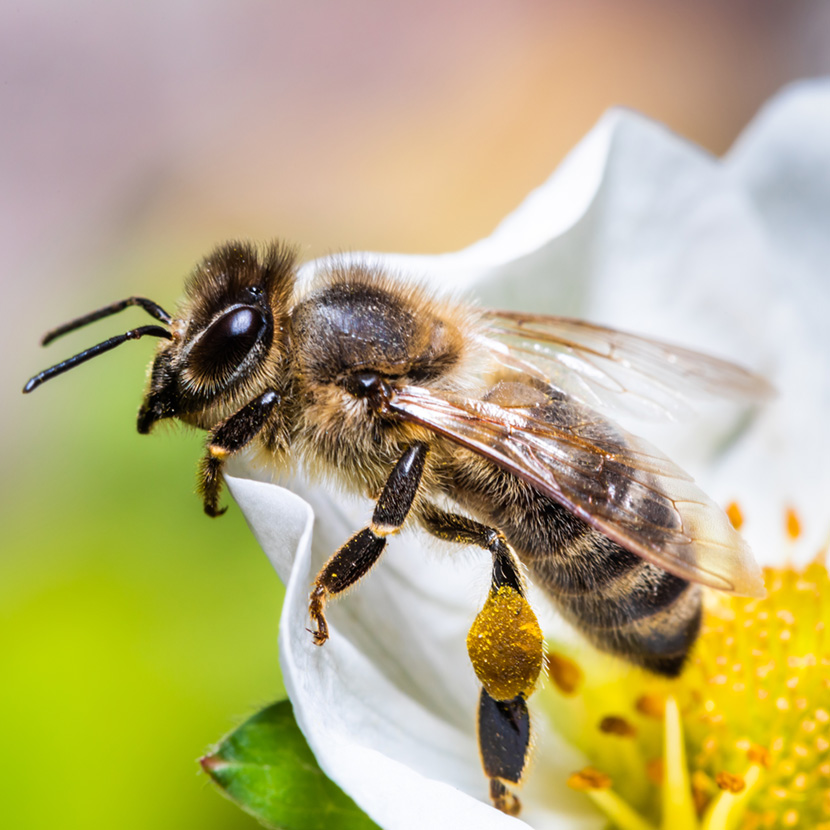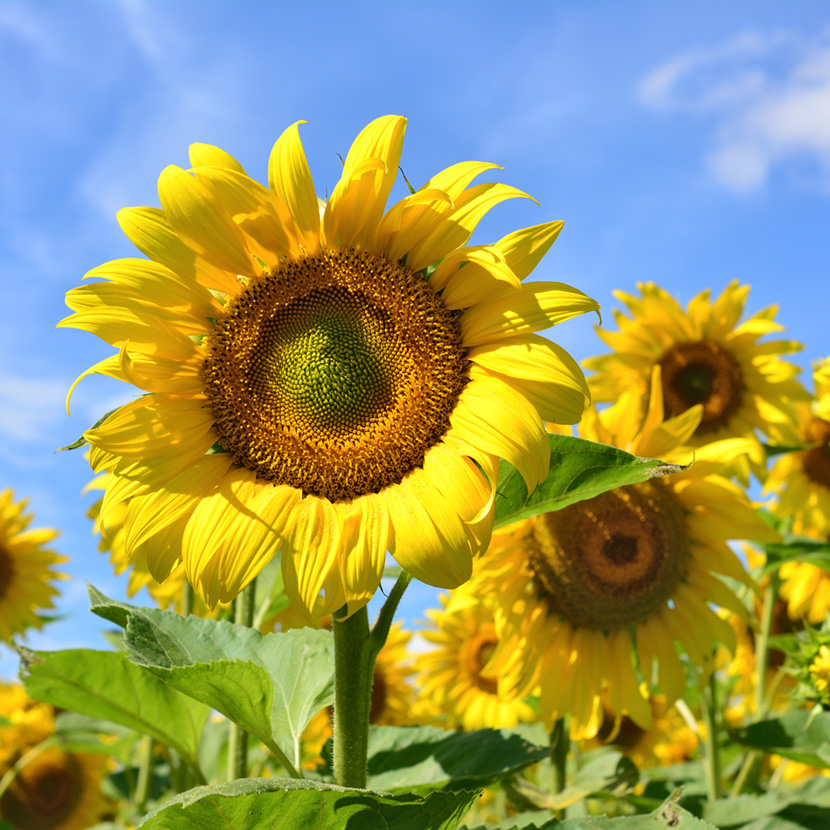ANIMAL WELFARE
All for the honey?

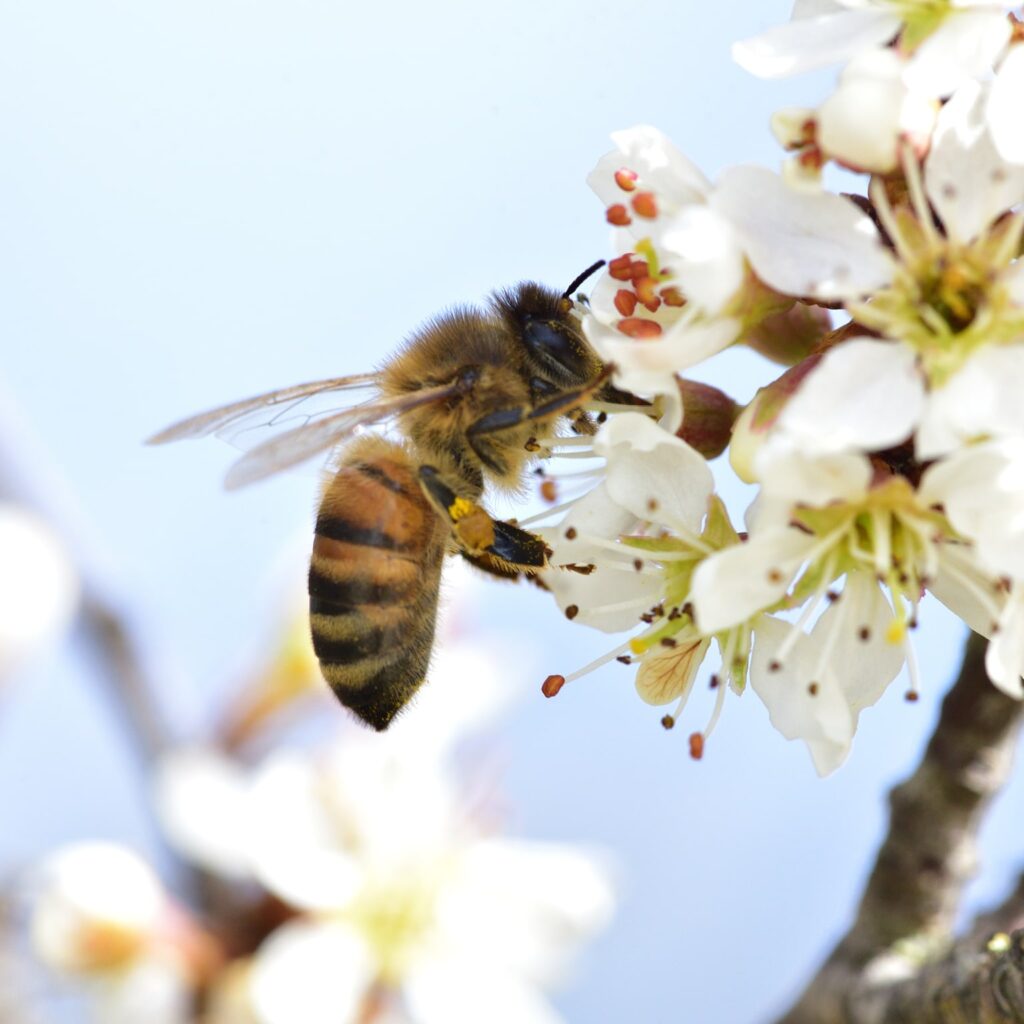
Bees – small but oh so very mighty
Bees enjoy a great reputation. In Germany, everyone knows the famous children’s cartoon about a bee called Maja, and her best friend Willi. But their reputation doesn’t stop there. As busy bees in the truest sense, these multi-talented little creatures are not only fundamentally important for any plant with blossoms or shoots – they are, above all, known and loved for their high productivity rate which provides real treasures: sweet honey, wonderfully-scented wax and soothing propolis are three good reasons to explain why people keep bees. As their products are so precious, there is almost no other animal population which is as comprehensively utilized (and exploited) as that of the honeybee.
Why it’s particularly important to protect the bees just now
Despite all the hype around the products we get from bees, we often (very unfairly) overlook the most important job they do for us: pollinating flowers. This is their main function in the overall ecosystem, and is essential for all our flora and fauna – which we see in all their glory now especially, in spring.
Without the bees, fruit trees would not blossom, and many flowering plants would wither in their beds before developing their crowning glory. This would be a particularly disastrous scenario for fruit trees and vegetables. Because without pollination, you don’t get any flowers, and that means no seeds or delicious fruits. The vegetable and pulse varieties which are particularly reliant on bee pollination include pumpkins and squashes, cucumbers, peas, and beans. And gardeners report lower quality in nightshade plants such as tomatoes, eggplants and bell peppers if the bees are not there to pollinate them. It is estimated that 30 percent of global harvests would fail if bees weren’t around.
So, not only do bees ensure that our springtime is full of colorful blossoms each year: they also play a significant role in making sure we can harvest some of our staple foods – the fruits we know and love. As we do not always experience bees’ industriousness up close, however, these eager buzzing creatures are often not afforded the appreciation they deserve – as an indispensable part of our blossoming springtime and of ensuring we have enough food to eat.
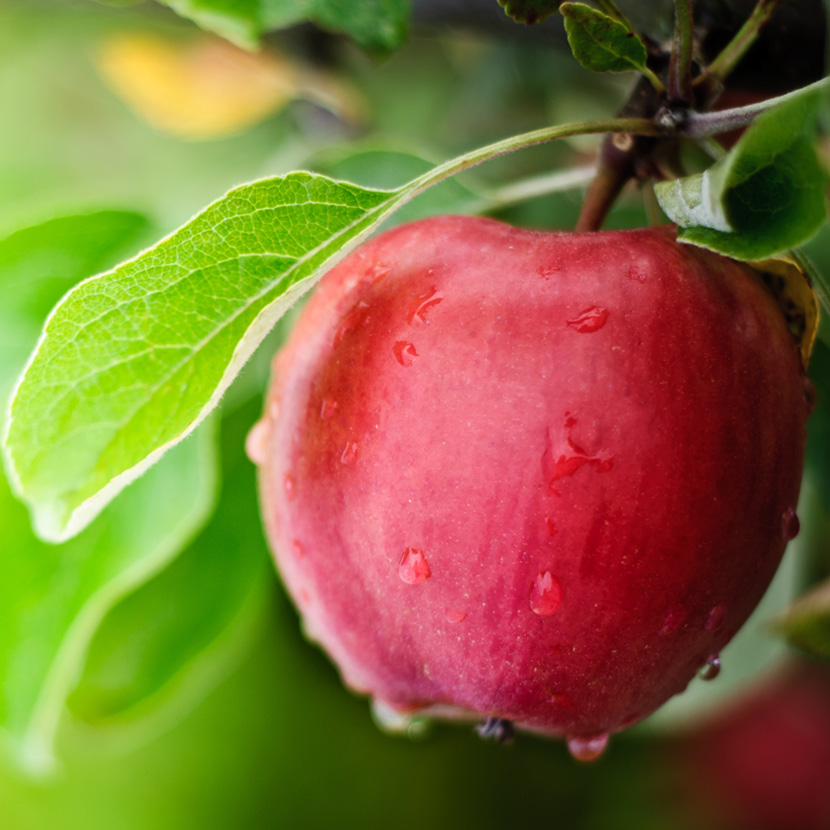
The collapse of bee colonies worldwide
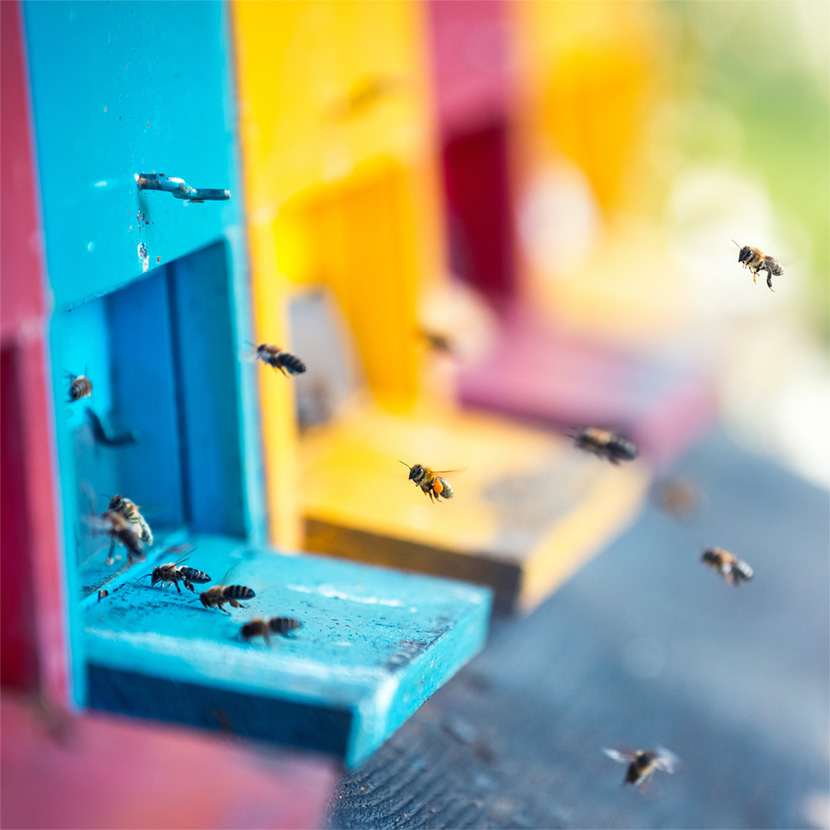
This makes it all the more important that bees – and the important role they play for the environment – are seen, appreciated and protected. Because the bees are facing serious threats.
Albert Einstein is thought to have said once that if the bees become extinct, human extinction will follow soon after. We can’t check how much truth there is to this claim, but the link to our food is very clear. So, there are more than enough good reasons to protect the bees.
The bees of today are facing a diverse range of threats. The collapse of bee colonies worldwide cannot just be attributed wholesale to a “natural catastrophe”, because the fact that bee numbers are dropping so quickly is the result of everything we humans are subjecting them to: bees are dying because of pesticides we spray on the fields, their colonies are collapsing because of our attempts to cultivate as high yields as possible, and they are suffering because of parasites which they are no longer able to fend off – often because of the lack of diversity of plants around them. At the end of the day, this means that bees are dying because of human interference in a perfect system which was once created by Nature itself. And as is the case with most attempts to improve on a system which is already in balance, there can only be losers. In this case, it’s the bees. And we, the ones causing the problems, may be next in line to be affected.
The legend of the busy bee
Due to many years of conditioning, conventional honeybees have not only been bred to be more industrious and docile – they have also been bred to produce ever greater quantities of honey. But there is a price to pay for this increase in performance: because today, bees are much more sensitive to negative environmental factors, and more susceptible to parasites. The consequence of this is that every year, entire bee populations simply collapse.
While honeybees are kept in beehives and have their own “battle” to fight there, as described above, wild bees include a very broad range of species. Even hornets fall under this bracket. The wild bees’ lives are made more difficult by many negative environmental factors on the one hand, and on the other hand by their honey-producing cousins from the apiary. Why is this? Due to humans setting up beehives and using the honeybees extensively, an artificial and unnatural form of competition has been created for the wild bees, which makes it more difficult for them to find food and territory. This is a classic example of what happens when humans interfere in nature’s balanced system.
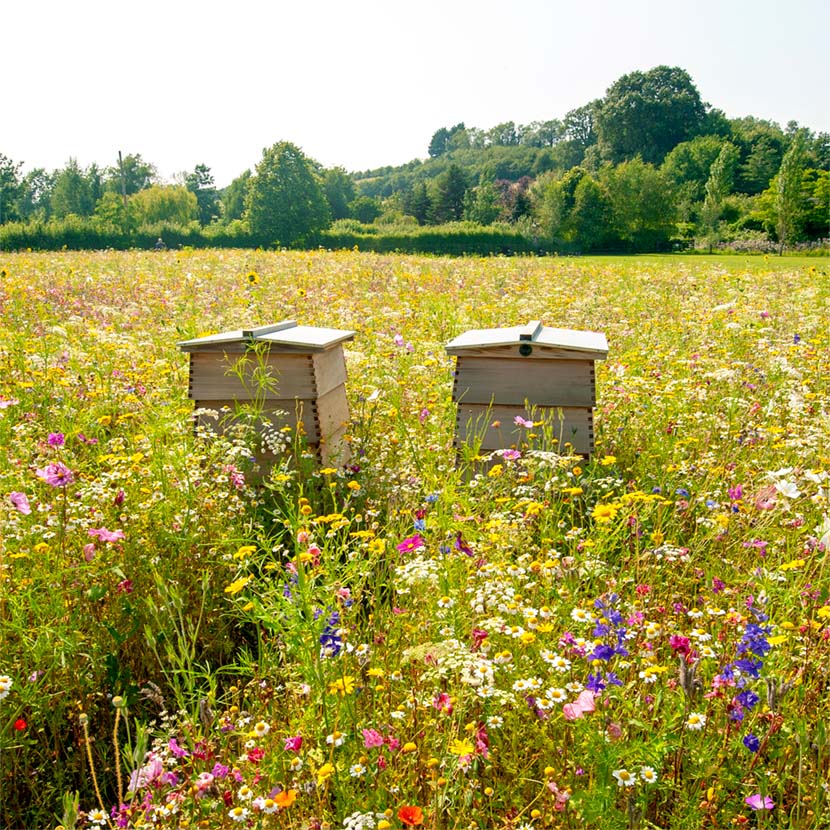
Protecting bees protects the environment
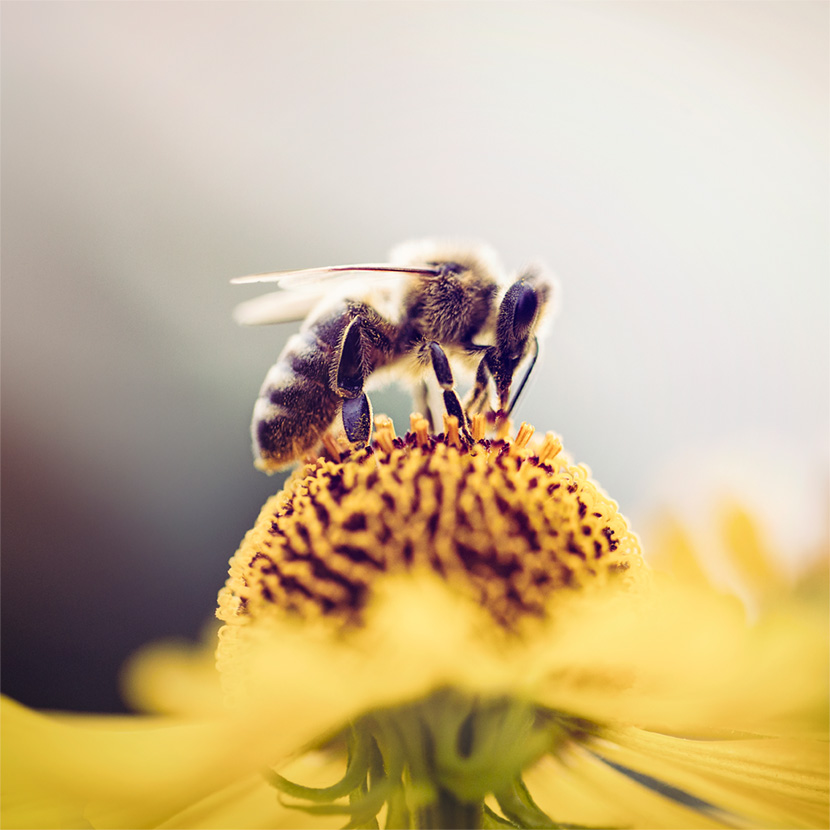
There are many different ways to protect bees! First things first: If you are following a vegan lifestyle and therefore going without animal products, this means that if you’re going to be consistent, you also need to go without honey and the other treasures bees produce. It’s a decision that benefits honeybees directly. Because when honeybees don’t have to work as hard, their immune defenses may be better able to cope with negative environmental factors – something which, in this case, would contribute to reducing the numbers of bee colonies collapsing. What’s more: while apiaries offer their honey-producing bee colonies space to live, they are also putting pressure on wild species who have to deal with competition. This means that from the wild bees’ perspective, the less beekeeping of honeybees that takes place, the better.
What you can do to help the bees
A vegan lifestyle and giving up bee products are direct ways of helping bees, but they’re not the only ways. Bees can also be protected effectively indirectly, through the preservation of their environment. It is a great help for them if natural spaces such as untouched flower meadows and uncultivated land are made available, and if people choose not to use pesticides, harmful fertilizers or chemicals. This applies to large-scale decisions. But everyone can do their bit: keep your garden free from pesticides and chemicals, and encourage wild plants to grow in your garden, on your balcony or wherever you can. Every little helps when it comes to the bees and their survival.
Buying products from mainly organic cultivation also plays a role in protecting the bees. Conscious consumption can make a crucial difference, just as a purely plant-based diet can. The reason for this is that plant-based foods need significantly less arable land compared to the land needed to grow plants for animal feed. Less arable land means less extensive agriculture, fewer monocultures, and more natural habitat for the bees. We think it’s great that everyone can do their bit!
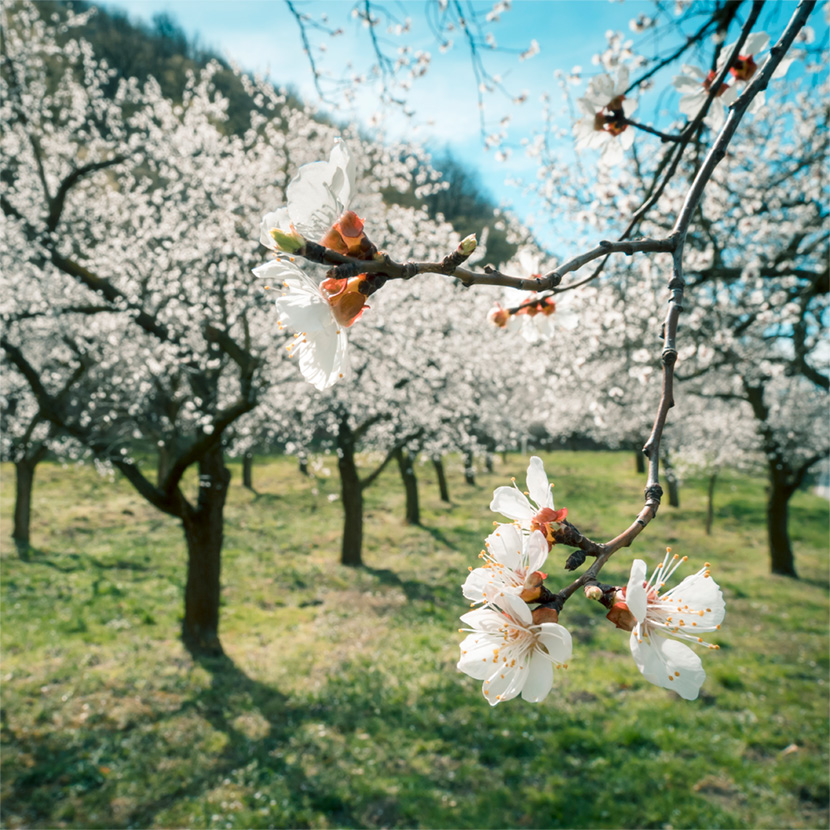
Vegan alternatives to honey
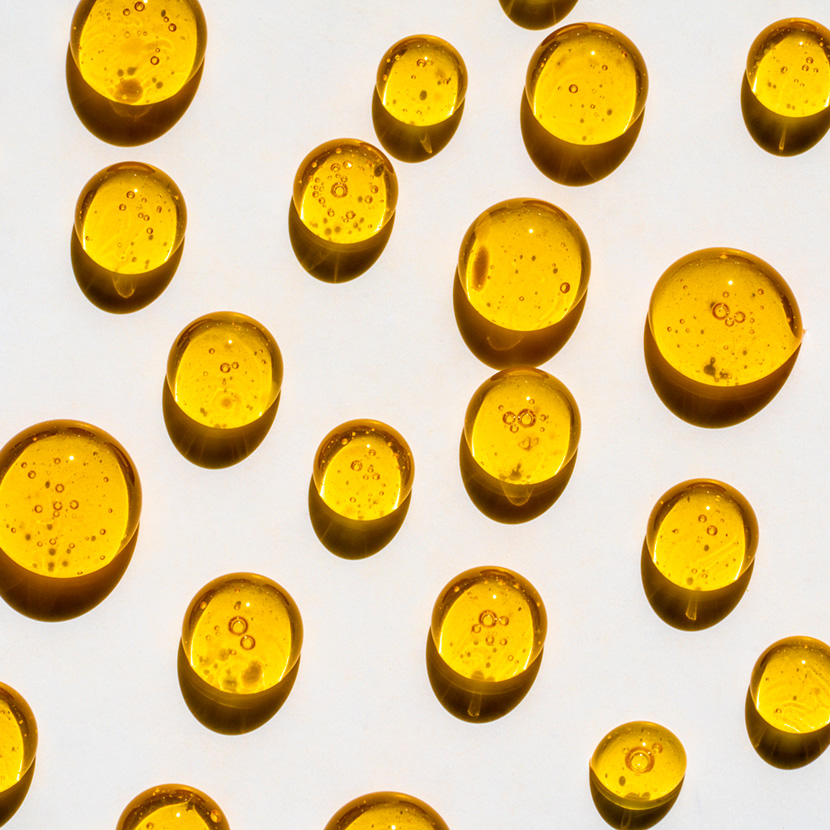
And if, even though it’s important to you to protect the bees, you find it difficult to give up the honey in your tea or on your toast at breakfast time, why not try out our vegan alternatives to honey here at Velivery?! “Wonig” (a variation on “Honig”, the German word for honey) by vegablum® not only offers a deliciously sweet alternative: it is also available in a whole range of flavors, from dandelion to lavender to chili! Double the deliciousness! We wish you a buzzingly beautiful spring with plenty of yummy food, a rich harvest and wonderful blossoms outside your front door!
